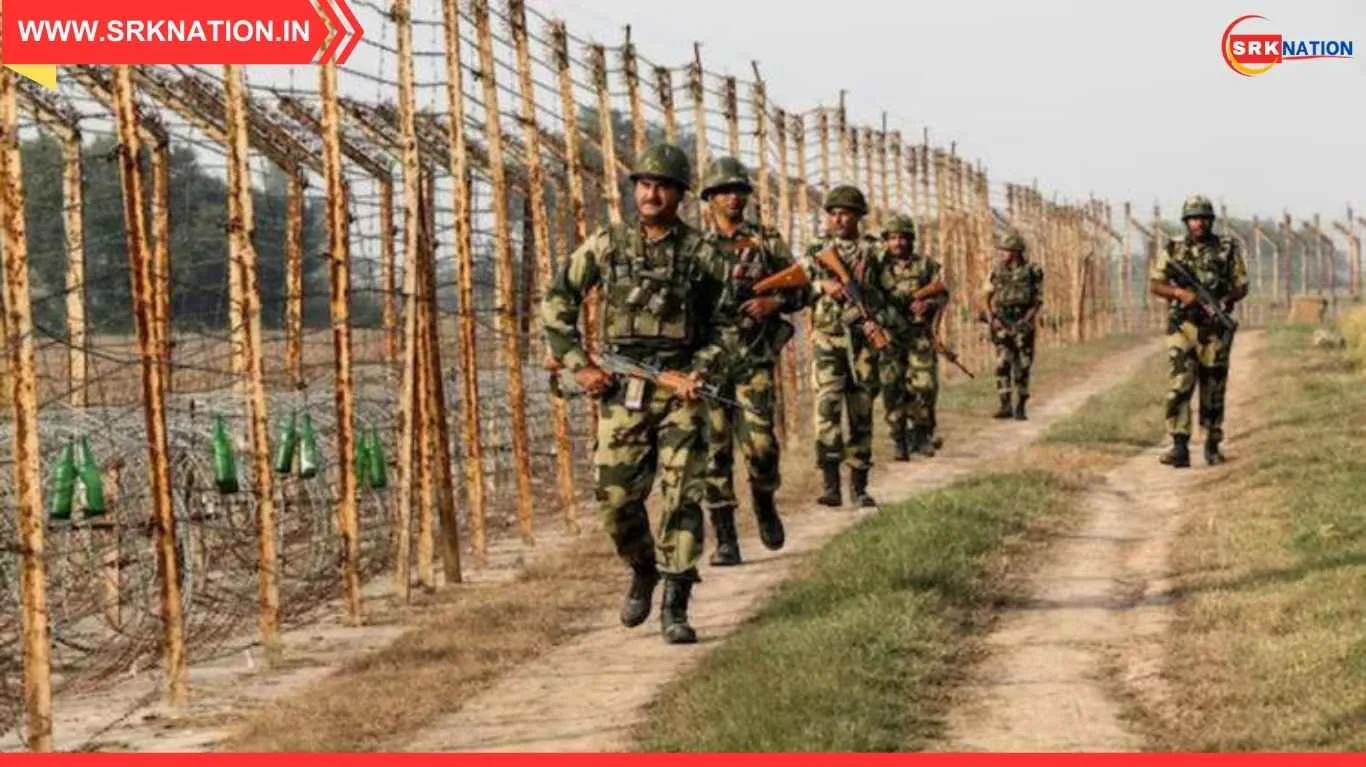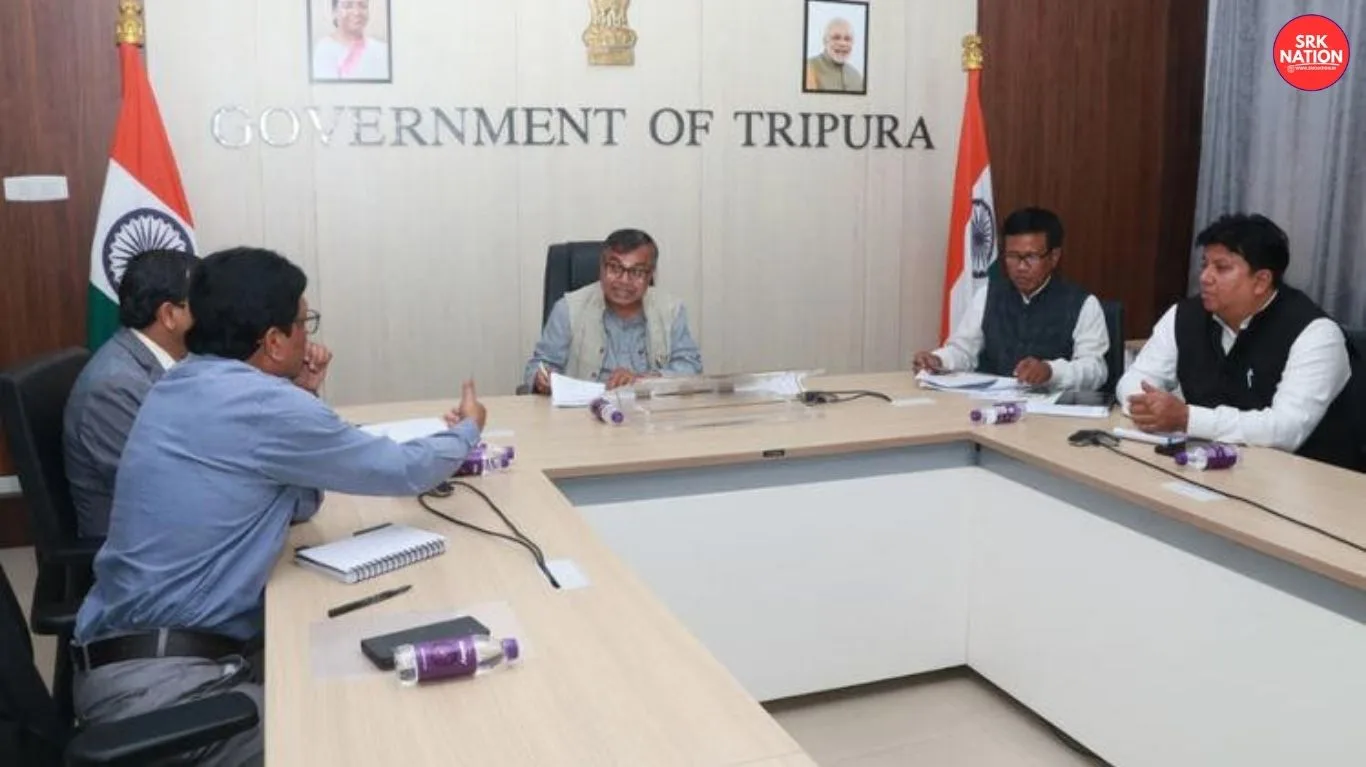Tripura has witnessed a remarkable decline in infiltration incidents along its international border, marking a significant achievement in India’s ongoing efforts to strengthen border security. Official data reveals that 366 brokers and facilitators involved in cross-border infiltration were arrested in the past three years, underscoring the success of coordinated operations by the Border Security Force (BSF), state police, and intelligence agencies.
The northeastern state, which shares a long and sensitive border with Bangladesh, has historically faced challenges related to illegal crossings, smuggling, and human trafficking. However, recent measures including enhanced surveillance, deployment of modern technology, and community engagement have led to a sharp drop in infiltration attempts.
📊 Key Highlights
- Sharp Decline: Infiltration incidents along Tripura’s international border have reduced significantly.
- Arrests: 366 brokers and facilitators apprehended in the last three years.
- Enhanced Security: BSF and state police intensified patrols and surveillance.
- Community Role: Local villagers cooperating with authorities to report suspicious activities.
- Strategic Importance: Tripura’s border security crucial for India’s northeastern stability.
🔎 Reasons Behind the Decline
Several factors have contributed to the sharp reduction in infiltration:
- Technological Surveillance: Use of drones, night-vision devices, and smart fencing.
- Increased Patrols: BSF strengthened its presence along vulnerable stretches.
- Community Engagement: Awareness campaigns encouraged locals to report infiltration attempts.
- Crackdown on Brokers: Arrest of 366 brokers disrupted organized networks.
- Cross-Border Cooperation: Improved coordination with Bangladeshi authorities.
📉 Comparative Snapshot of Infiltration Trends
| Year | Reported Infiltration Attempts | Brokers Arrested | Success Rate of Prevention |
|---|---|---|---|
| 2022 | 210 | 120 | 75% |
| 2023 | 150 | 130 | 82% |
| 2024 | 95 | 116 | 88% |
| 2025 | 60 | – (Ongoing) | 90% |
🔄 Security Measures vs Community Role
| Factor | Security Measures | Community Role |
|---|---|---|
| Surveillance | Drones, smart fencing, night patrols | Villagers reporting suspicious movements |
| Arrests | Crackdown on brokers and smugglers | Cooperation with police investigations |
| Prevention | BSF coordination with state police | Local vigilance reduces infiltration chances |
| Long-Term Impact | Stronger border security | Trust-building between authorities and citizens |
🚀 Strategic Importance of Tripura’s Border
Tripura’s international border is strategically vital for India’s northeastern region:
- Geopolitical Sensitivity: Proximity to Bangladesh makes it a hotspot for illegal crossings.
- Economic Impact: Smuggling of goods affects local markets and revenue.
- Security Concerns: Infiltration linked to organized crime and potential extremist activities.
- Regional Stability: Strong border control ensures peace and development in the northeast.
💬 Voices from the Ground
Local officials and security experts have praised the success of recent measures:
- BSF Officials: Highlighted the importance of technology in reducing infiltration.
- Police Authorities: Stressed that arresting brokers has dismantled organized networks.
- Community Leaders: Emphasized the role of villagers in cooperating with authorities.
🌍 Broader Context
Tripura’s success reflects India’s broader border management strategy:
- Smart Fencing Projects: Implemented across multiple states to prevent illegal crossings.
- Integrated Check Posts: Streamlining legal trade while curbing smuggling.
- Regional Cooperation: Engagement with neighboring countries to strengthen border protocols.
- National Security: Reduced infiltration contributes to overall stability in sensitive regions.
📊 Arrests of Brokers by District (Last Three Years)
| District | Brokers Arrested |
|---|---|
| North Tripura | 120 |
| West Tripura | 85 |
| South Tripura | 95 |
| Dhalai | 66 |
📝 Conclusion
The sharp decline in infiltration along Tripura’s international border and the arrest of 366 brokers in three years highlight the effectiveness of India’s evolving border security strategy. By combining technology, manpower, and community cooperation, authorities have successfully disrupted infiltration networks and strengthened regional stability.
Tripura’s achievement serves as a model for other border states, demonstrating that sustained vigilance, modern surveillance, and grassroots participation can significantly reduce illegal activities. As India continues to modernize its border management, the focus will remain on ensuring security while fostering trust between citizens and law enforcement agencies.
⚠️ Disclaimer
This article is for informational purposes only and is based on publicly available security updates. It does not constitute legal or policy advice. Readers are encouraged to follow official government and security agency communications for the latest updates.











